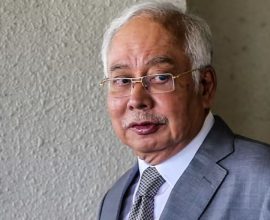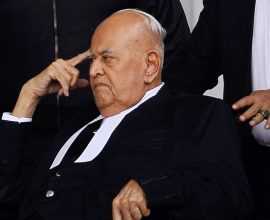Does the King have the Power to Dismiss a Prime Minister?
The answer is, in my view, is ‘Yes’, subject to several conditions.
We shall deal with the conditions soon.
[1] Let us first examine how a Prime Minister is appointed
The mechanism of appointment is in Article 43 of the Federal Constitution.
A Prime Ministerial candidate can only be chosen from the House of Representatives (or ‘Dewan Rakyat’ as we call in it Malaysia).
If in the judgement of the King, that candidate ‘is likely to command the confidence of a majority of the members of the Dewan Rakyat’ which means a majority of 112 MPs or more then the King may appoint the candidate as prime minister.
[2] What if the incumbent prime minister loses his majority?
Can the King dismiss him? Does he have that power?
Some lawyers argue that the only place a majority can be tested is in the Dewan Rakyat.
But our Dewan Rakyat is not in session. It has been shut down on a Covid-19 scare.
In a series of cases, this principle of when and how to determine a leader’s majority support has been tested.
It started in a 1963 Privy Council case called ‘Adegbenro v Akintola’.
That case recognised the constitutional principle, that so long as the Dewan Rakyat is in being, a majority of its members can determine the effective leadership of the nation.
The court also recognised the second principle that once a leader has lost his majority support, he must resign, unless the King consents to dissolve Parliament.
[3] The Constitution allows the King to refuse the request for a parliamentary dissolution.
That is reflected in our article 43 of the Federal Constitution.
But what if the prime minster refuses to resign? Can the King dismiss him? Must the King wait for Parliament to convene?
The parliamentary meeting, no doubt can again be postponed in September on another Covid scare.
In a number of cases, the courts have decided that the King does not have to wait for a parliamentary vote.
Do you recall, the 2009 Perak conflict, between Dato Seri Mohammad Nizar Jamaluddin and Dato Seri Dr Zambry Abdul Kadir?
In 2010, the case reached the Federal Court.
The Federal Court decided that the evidence of a loss of confidence can certainly be established in a legislative assembly, like the Dewan Rakyat.
That is one way, but not the only way.
Loss of confidence can also be determined, it ruled, ‘from extraneous sources’, provided that such evidence is ‘properly established’.
[4] The power of appointment also includes a power of dismissal
Second, section 94 of the Interpretation Acts 1948 and 1967 states that where a law allows a person to appoint to any office, that power of appointment also includes a power of dismissal unless a contrary intention appears in the law.
I am paraphrasing.
If you remember, in the 1966 Sarawakian case of Stephen Kalong Ningkan, the Sarawak constitution, the court held, did have such a contrary intention.
[5] The Constitution is silent
But today, the facts are the same as Adegbenro, but the law is different.
The constitution is silent on the question of whether the King can or cannot dismiss the prime minister.
But note that, under sec. 94 of the Interpretation Acts ‘no contrary intention’ in the Constitution stops the King from exercising that power.
And more than 8 MPs have expressly written to the King withdrawing support from the PN government.
A few days ago, the Deputy prime minister said the Cabinet had the support of ‘more than’ 110 MPs.
Well, that is less than the absolute majority of a 112 MPs. Minus 8 from that number and one is left with 103 to 104 MPs.
So the loss of majority is as plain as a pikestaff.
The prime minister could have asked the King to dissolve parliament.
But we cannot call an election now.
Infections are at an all-time high of more than 19,000.
So, the only choice is for the PM to resign.
If the PM refuses to resign, the King can do several things in law.
We will talk about that later.
But in my humble opinion, the King can, if, upon his careful confirmation of extraneous material that the Prime Minister has lost majority support, then in my opinion, the King can dismiss the incumbent PM. But it is only my opinion.
There is no such thing in the Constitution. The law allows this.
So why wait for Parliament to convene at some future date especially when the constitution does not allow the PM to ‘buy time’ as it were to prove his majority?
This is especially since UMNO has openly challenged him to prove his majority?





